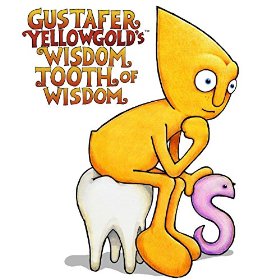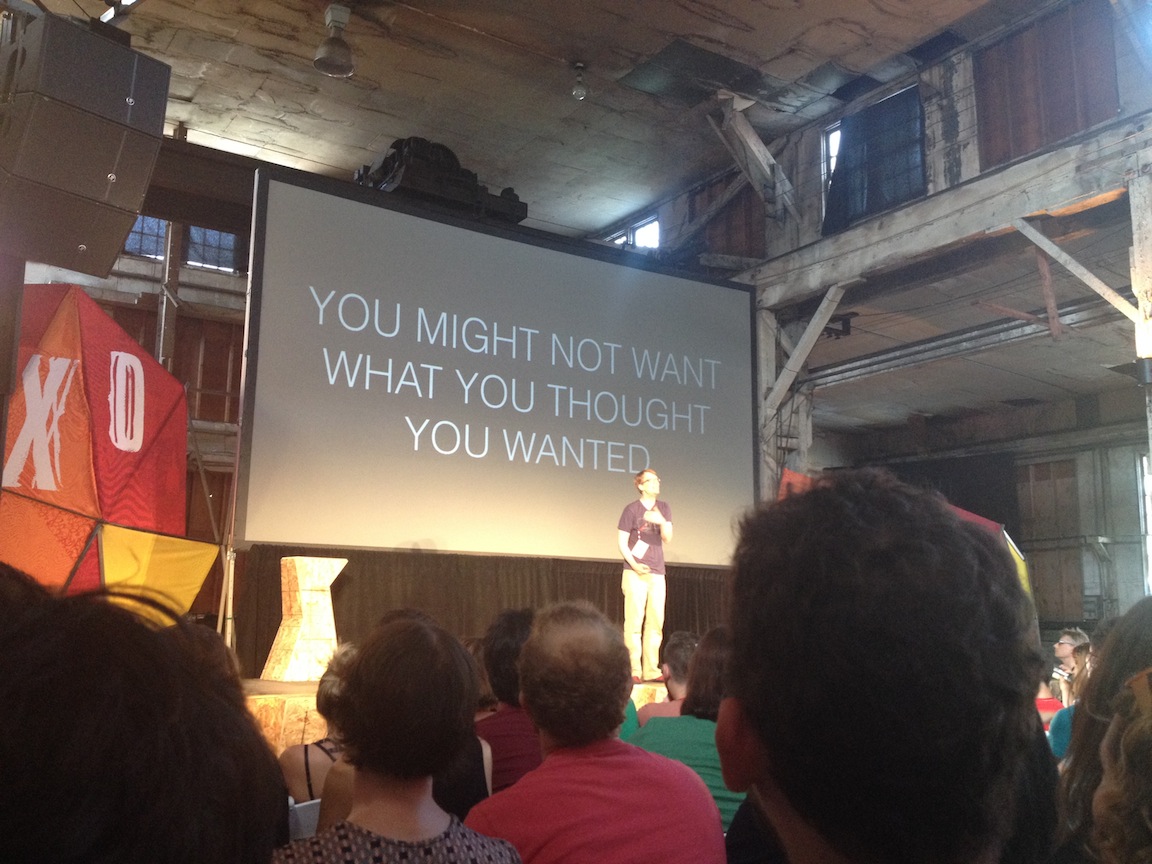I'm a straight, white male, reasonably fit and healthy, and with a middle to perhaps upper-middle class upbringing here in the United States. That means I've already been luckier than 95% -- 98%? -- of anyone who's ever lived in terms of the ease of my life.
It is the equivalent of having someone hand you two scoops of ice cream served in a waffle cone from Salt & Straw for no reason whatsoever. (I took one of my dinner breaks to walk there from the conference and eat ice cream. For dinner. It was worth it.)
It is the equivalent of winning the lottery. Maybe not the million-dollar jackpot -- though I suspect that over a lifetime those personal characteristics may very well have given me a million dollars worth of advantages -- but certainly a big deal.
And being at XOXO was like winning the lottery again. I literally won a lottery to attend -- that was how the Andys chose to divy out most of their passes to the event to people who applied online, and my name was randomly selected. It wasn't cheap, either -- $500 for the conference and festival pass, plus travel expenses. That middle-class day job I have? That allows me, with diligent budgeting, to sometimes do something like this.
So I spent a lot of time listening and thinking about privilege. For me, some of the most useful presentations and conversations of the weekend were the ones like that from Rachel Binx, who has founded a couple different companies, but who was brutally honest in recounting the times when running those business has been difficult financially. I talked with art dealer Jen Bekman about a presentation she found frustrating in a way I might not otherwise have understood. I got to see one of the iOS apps that the App Camp For Girls developed this past summer and talk about the need for more such environments with founder Jean MacDonald. I'd like to think I understood those concepts intellectually in my younger dats, but as a parent of a STEAM-obsessed Miss Mary Mack who's now thinking about high schools and math and programming, it's become more real for me. (All this, plus a talk about misogyny in gaming by Anita Sarkeesian, whose presentation was far more calm and rational than I would be if I'd had death threats lodged against me and my mere presence to give a talk required the presence of a bodyguard.)
The most subversive talk of the conference was from Darius Kazemi. I don't want to ruin his talk too much, but suffice it to say it was funny and served as a commentary on many talks at tech conferences and, to be honest, lots of conferences generally. Kazemi points out that a lot of people's success is based on luck -- he pinned the percentage of stuff that succeeds with the public at maybe 10%. This is similar to what musician Jonathan Mann said in a separate talk, and also echoed the comments of Hank Green and Joseph Fink. Both success and failure can be inexplicable.
Not that successful people don't work hard -- many of them do. Heck, I've won those lotteries I've mentioned above, and I still work hard. But to interpret your own success as based solely on work is to deny the power of randomness. Lots of people work hard and never achieve stunning success. Better, then, to focus on the process than the result and try as many things as you have time to. (David Lowery would agree.)
My XOXO was one of a billion possible XOXOs I could have had. Most of them would probably have been equally strange and wonderful. A handful might have unalterably changed my life (presumably for the good, but one never knows). But it's the XOXO I did have, and I'm grateful for it. (Thanks, Andy and Andy. You guys rock.) Being humble in the face of good fortune you know you're at best only partially responsible for is a good approach for life generally.














